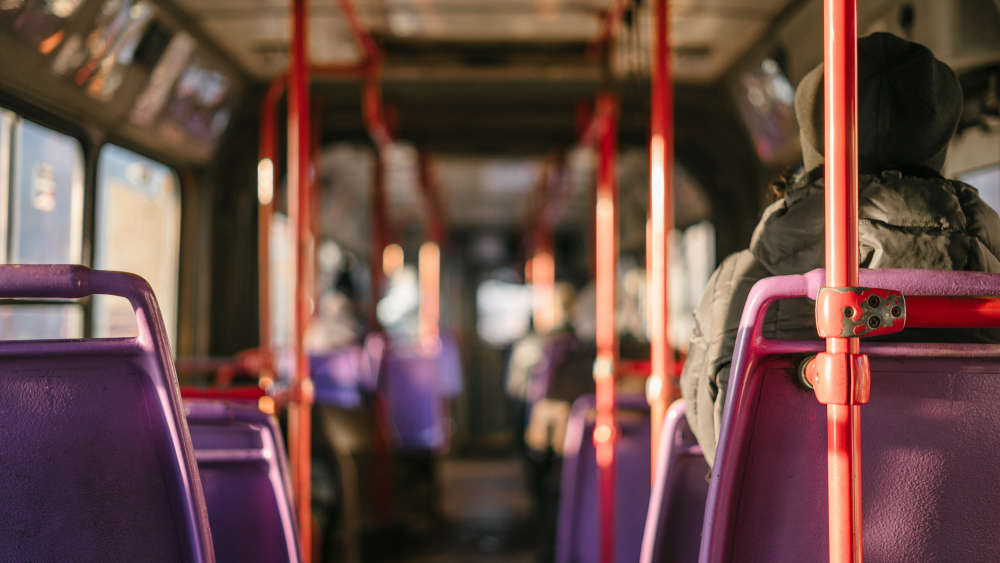
Passengers across Hull and the East Riding of Yorkshire will enjoy cleaner, more reliable and more comfortable bus journeys as the Government delivers nearly £6 million to roll out new state-of-the-art electric buses in the region.
Hull City and the East Riding of Yorkshire Council receive funding to give residents cleaner, more modern and more reliable bus fleets.
Part of the Government’s plan to improve local transport across Yorkshire and the Humber, growing the local economy and delivering a brighter future for all.
Follows £2.5 billion from reallocated HS2 funding to improve local transport connections across the North for more people, in more places, more quickly.
Today (Friday 22 March), Transport Secretary Mark Harper has confirmed that 40 zero-emission buses will hit the road as the Hull City and the East Riding of Yorkshire Council receives £5.7 million to decarbonise their bus fleet.
The new investment will help make local buses across Hull and the East Riding of Yorkshire more modern, cleaner and more reliable, improving the local journeys that so many people rely on.
The funding is part of the £143 million investment from the second round of the Zero Emission Bus Regional Areas (ZEBRA) programme, which will see new electric buses across towns, villages and cities across England, many of which will get zero-emission buses for the first time.
Thanks to the ZEBRA scheme, no other European country registered as many electric buses in 2023 as the UK, with zero-emission buses accounting for almost half of all new large buses introduced last year, according to the Society of Motor Manufacturers and Traders (SMMT).
The new electric buses come shortly after £2.5 billion of reallocated HS2 funding from the Local Transport Fund which will be invested directly into the North to invest in improvements such as refurbishing local bus stations and improve local connections for more people, in more places, more quickly.
The funding is in addition to more than £3.5 billion the Government has been investing since 2020 to protect and improve bus services in England. The £2 bus fare cap has also been extended all the way to 31 December 2024 and a further £1 billion is being invested to improve bus services in the North and the Midlands, both made possible by reallocated HS2 funding.
Transport Secretary Mark Harper said:
“As part of our plan to improve local transport in Yorkshire and the Humber, we’re providing over £5 million to roll out 40 brand new zero-emission buses in Hull and the East Riding of Yorkshire.
“This latest investment into our bus fleet comes on top of the £3.5billion we have invested into our bus network since 2020, protecting and improving bus routes into 2025 as well as extending the £2 bus fare cap until the end of 2024, made possible by reallocated HS2 funding.”
The new funding follows almost £57 million to roll out 260 electric buses in Yorkshire and the Humber from the first round of ZEBRA funding, taking the total number of electric buses directly funded by Government in the region to 300.
To make sure more parts of the country benefit from better buses and green technology, particularly rural areas where the journey towards decarbonising buses is in its early stages, the Government has prioritised the first £40 million for rural communities.
These state-of-the-art buses will also improve the passenger experience, providing users with considerably quieter and more comfortable journeys. The new zero-emission buses will also drive on smoother roads thanks to £8.3 billion to resurface over 5,000 miles of roads in England over the next decade, the biggest ever funding uplift to improve local roads, all thanks to reallocated HS2 funding.
The new zero-emission buses will not only be cleaner, helping improve local air quality both for bus users and the local communities, but they will also be more modern and replace older diesel buses.
They will also meet Enhanced Accessibility Standards, and will come with the latest passenger experience features such as wi-fi and USB charging sockets.
Alison Edwards, Director of Policy & External Relations at the Confederation of Passenger Transport says,
“CPT welcomes this support from Government to help accelerate vital public and private investment in new zero emissions vehicles and charging infrastructure. The transition to a zero emissions bus fleet is a huge opportunity for Britain to lead the world in creating a modern zero emission bus network that offers a growing number of passengers one of the most sustainable forms of transport.”
Today’s funding comes on top of over £145 million to improve bus services in Yorkshire and the Humber from the Department’s Bus Service Improvement Plan.
Matt Carney, CEO – Go-Ahead Bus, said:
"Today’s news cements our position as leaders in delivering zero emission public transport. Our collaboration with local authority partners, supported by the Government's ZEBRA scheme, reflects our shared vision for a cleaner, more sustainable future.
“This expansion of our electric bus fleet not only demonstrates our commitment to reducing emissions but also marks a pivotal moment in the evolution of public transport in our areas of operation. We are dedicated to contributing to a greener, more sustainable future. I'm confident we'll achieve our goal of being fully zero-emission by 2035."
Councillor Mark Leronimo, cabinet portfolio holder for transportation, roads and highways at Hull City Council, said:
“We welcome today’s announcement from the Department for Transport of funding towards the rollout of electric buses, which will have a transformative impact on public transport throughout the city.
“Electric buses are greener and cleaner and will help combat climate change. There are currently no electric or hybrid buses operating on public bus services in Hull so, in addition to the environmental benefits, the new vehicles will have a wider impact by changing how our residents, and visitors to the city, see buses and help encourage, and increase passenger demand.”


